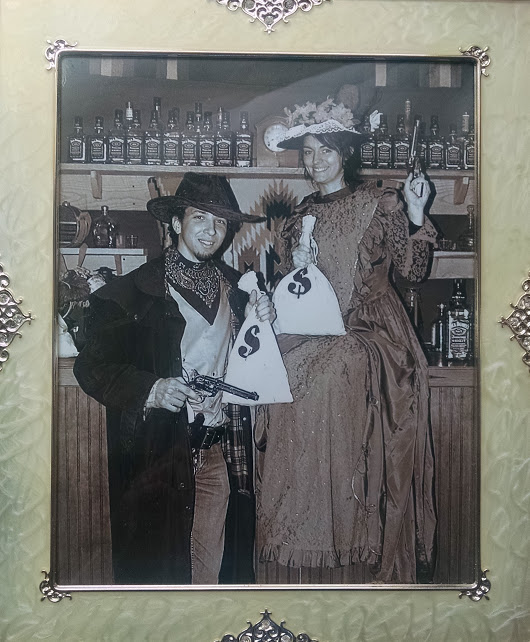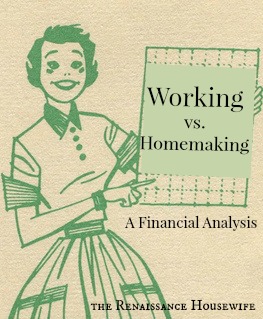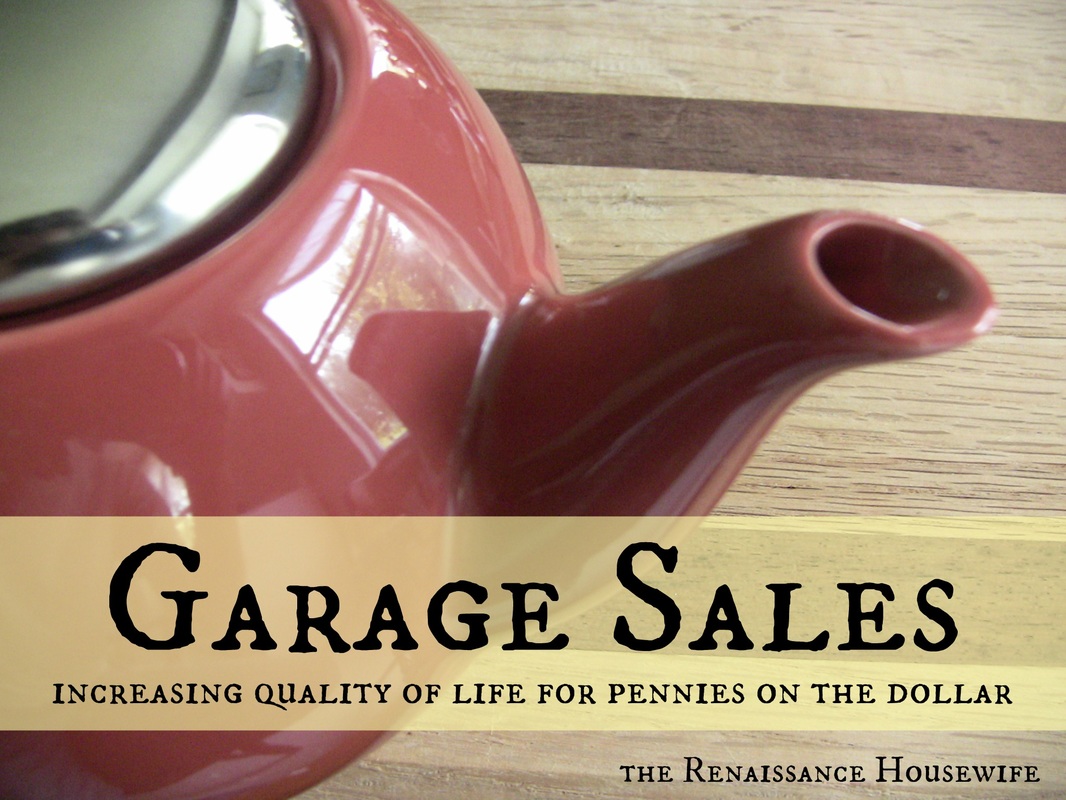Of course I said yes, even though I thought those things were kind of like ripoff carnival games where you end up paying $20 in tickets to win a cheap stuffed animal. But I went along with it anyway. The photographer gave us some ratty 1980's-style western wear to put on, and had us pose with toy pistols and money bags. I felt silly doing it, but you know... for Hubs.
When we were done, we went up to the counter to pick out a picture to take home. When I saw the prices for each photo, I almost died. It was somewhere between $20 and $40. After that, none of the pictures that we had taken looked good enough to bring home. Of course Hubs was still excited about the whole ordeal, asking me which ones I liked and pointing out the ones he thought were best.
An Attitude Adjustment
I almost said to him, "Can we just NOT buy a photo and go spend the money somewhere else?" But then I remembered what he had said before we walked in. "I've always wanted to have one of those pictures taken." For him, it wasn't about paying $40 for a photograph. For him, it was living out an experience he'd always wanted to have, and better yet with the girl that he loved!
Right then and there, I decided to change my attitude about the situation. I pasted on a smile and told him which photographs I thought were the best. It was not worth a $40 savings to ruin an experience that he'd always looked forward to. I didn't want him to look at that picture and remember the time I threw a fit because it was too expensive.
When we left, he looked at the picture again, beaming. "Thanks so much for letting us stop in there," he told me. "It really is a nice picture."
*****
Memories are permanent. Money can always be earned or spent, but once a memory is made there is no taking it back. Whenever I look at the old time photo of us, I'm reminded of the time I had a bad attitude and almost ruined Hubs' birthday. If I would have told him my concerns about the price, he probably would have honored my request and left without the photo, disappointed and sad that his fiance was such a tightwad that she couldn't enjoy the old time photo booth with him.
I am so happy that Hubs can look at the old-time photo of us and remember good things. Just the other day he brought it out again to show a friend and I was reminded how important it is to put memories before money.
What about you? Are there items in your home that you don't even like to look at because they resurrect bad memories caused by money fights? It's especially hard for those of us who are frugal. It's important to us to save money, so we have a conniption (disguised as "deep concern" that our spouse or friend is making bad choices) whenever someone spends too much. Even if it is not our money! In the case of our old time photo, Hubs was spending his own money on something he had always wanted for his own birthday. In my heart, I knew he was a wise spender and that he probably wouldn't buy another $40 photo for years, but still I felt the need to throw a fit about it on his birthday. Shame on me!
How to Handle Over-Spending and Eliminate Bad Memories
The good news is that we can begin making good memories and prevent bad ones, starting today. In a situation where I think Hubs is spending too much money, I always ask myself the following questions:
1. Can we afford it? We can almost always afford it.
2. Why is he spending it? In the case of the old time photo, he was doing something he had always wanted to do. Many times when he spends "too much" money on something, it is for me, or something to make me happy. Believe me, ladies- this should never be discouraged!!
3. Is it worth making a bad memory over? If Hubs wanted to by a $40,000 boat, that might be something worth making a bad memory over. But a $5 sandwich at McDonalds is no reason to ruin a vacation or Sunday afternoon. See #1.
4. When would be a better time to address this spending habit? Hint: not on his birthday. Or yours. Or any other time when it would ruin a potentially good memory. And never address over-spending when there are other people around, because that is embarrassing.
5. What would be a tactful way to bring this up? Instead of staging a major protest and sharing my "deep concern" with tears or anger, I try to mention it in an offhand way without any emotion. This makes it more of a discussion and less of a fight.
"Hey honey, I've noticed that you always buy the $5 sandwich at McDonalds. Did you know that two of the cheaper sandwiches give you more meat for less money? I know, it's crazy!"
"Dear, there is this brand I really like at Walmart called Price Smart. You can find it at the bottom of the aisles, with Spanish subtitles on every package. It would make me so happy* if you could buy that brand when I send you in to get something. Thanks!"
When addressing over-spending, I never bring up something wrong he did in the past to use as an example (although it is really tempting sometimes). This is counter-productive and will NOT change his behavior. It doesn't make him feel good about doing what I want. Plus, it can't change something that already happened. My goal is to prevent problems, not complain about them after the fact.
Memories Matter More
Remember that there will always be more money somewhere, but our days and hours on this earth are limited. Nobody ever lay dying and wished they could have saved just one more dollar. Tightwads have a bad name because they put money before memories.
Being frugal is important (especially to people like me!) but it is not the most important. We can't afford to have a lifetime of bad memories. We can't afford to argue about pennies. I challenge you to think about what is most important. It is worth more than money.
-Bethany
*I really like using this phrase. Husbands can argue the logic of saving money, being healthy, etc., but they can't argue with what makes you happy. Oftentimes they don't even care about being richer or healthier, but every husband wants a happier wife. And don't forget to reward him with a double dose of happiness when he saves that extra dollar for you!







 RSS Feed
RSS Feed





